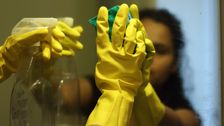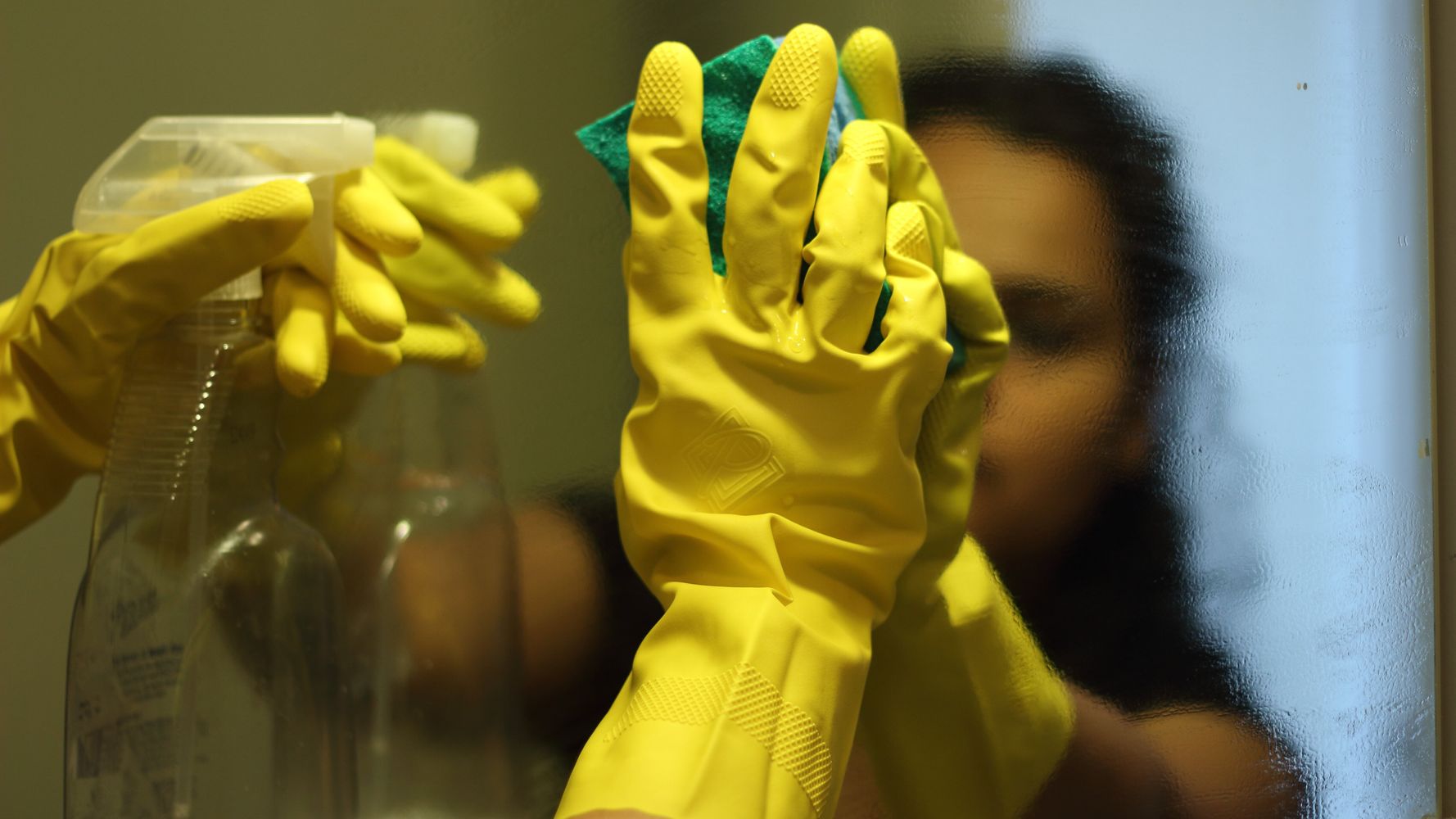[ad_1]

Lourdes Dobarganes, 54, works for over a dozen families in the San Francisco Bay area as a house cleaner, babysitter and caretaker for seniors. During the coronavirus pandemic and a regional order to “shelter in place,” all of her employers have told her not to come in to work. Not a single one has offered to pay her in the meantime.
“They left me without work,” Dobarganes said, adding that the three families for whom she babysits now have parents working from home, and relatives of the three elderly people she cares for, all over age 90, have said the risk of infection is too high. Those whose homes she cleans don’t want to risk contagion.
So she’s staying home, without pay. Her daughter, who usually helps with money, is also out of work, because the restaurant she worked for moved to take-out only, in compliance with San Francisco’s “shelter-in-place” order.
“This situation is hard — I need to pay rent, pay food,” Dobarganes said in Spanish.
She’s not alone. Dobarganes is one of 2 million domestic workers across the country — house cleaners, nannies and homecare workers — who will likely face similar situations of being asked to not come in to work, as more and more districts close schools, companies mandate that employees work from home, and local governments enact stricter orders to keep residents apart to stem the spread of the virus.
What’s worse, for house cleaners who are still asked to come in to work, their duties could expose them to the virus, as they touch people’s clothes, change sheets, and wipe bathrooms and other surfaces.
“I’m worried about not going to work and I’m worried about going to work,” Betania Shephard, 33, who cleans homes in Philadelphia, said in Spanish. She cleans five family homes and nine apartments rented out as Airbnbs. So far one family canceled an upcoming cleaning and she hasn’t heard yet from the others, who may do so as well. Meanwhile, she’s scheduled to clean one of the rental apartments on Saturday.
“If I don’t go to work, at the end of the month there’s bills to pay. But when I go out, I’m worried,” Shephard added, noting that many people who stay in Airbnbs are travelers who came from other areas. “The virus can stay in any place. I’m running a risk — I touch things, I clean bathrooms. It’s hard.”
House cleaners don’t have the option to work from home — and they also generally don’t have access to employer-provided health care or paid sick leave. Domestic workers have long been excluded from basic labor protections under federal and state laws, including rights like paid time off or pay for shifts that are canceled last-minute. And as they often work for multiple employers for short amounts of time and may be paid in cash, it can be challenging for them to prove earnings to qualify for unemployment benefits.
Over 90% of domestic workers in the U.S. are women, according to a 2012 national study of domestic workers. More than half of them were women of color and 46% were immigrants.
“House cleaners’ lives are at risk: They need to work, to pay their bills and rent, and feed their children, but the nature of domestic work requires them to be in someone else’s home, where they would be at risk for infection,” said Mariana Viturro, deputy director at the National Domestic Workers Alliance. “Many house cleaners are facing an impossible choice: risk their income, or their health.”
As of Wednesday, there were over 100 people reported dead from COVID-19 in the U.S., with over 7,000 cases across all 50 states.
A new NPR and PBS poll found that nearly one in five U.S. workers lost jobs or had their hours reduced due to the coronavirus pandemic. For people making less than $50,000 a year, that figure jumped to one in four. The poll was conducted in mid-March, before San Francisco’s lockdown and other school and workplace closures around the country.
Unite Here, a union of hospitality workers in the U.S. — including cleaners in hotels, and those who work in food services and other industries — said Wednesday that they expect 80 to 90% of members to be out of work due to coronavirus.
“In this moment I have nothing to protect me,” Shephard said. “If I don’t work, I don’t get paid.”
Dobarganes said she’s also been “psychologically affected” over the past weeks. “I feel panic, I feel afraid. And for the people I take care of, too,” Dobarganes added, in tears.
Shephard said employers should provide house cleaners with pay when they’re forced to take time off, or with protective gear, like masks and gloves, to be able to work more safely.
She urged people to donate to NDWA’s fund for domestic workers affected by coronavirus, and said it was important for Congress to pass the Domestic Workers Bill of Rights, which enshrines things like paid sick leave, overtime and breaks for house cleaners and nannies.
Congress passed a coronavirus aid bill on Wednesday, which included paid sick leave for some workers. Technically domestic workers in a “formal employment relationship” with an employer who pays employment taxes for them would be included under the bill, according to Vicki Shabo, a policy expert on paid leave at New America, a think tank. However, in practice, “this would be difficult to enforce — and workers might not know their rights,” she added.
“It’s stressful, it’s exasperating,” Dobarganes said of her and other cleaners’ situations now, adding that domestic workers are “unprotected” and “don’t have rights.”
“There’s nowhere to run to.”
Calling all HuffPost superfans!
Sign up for membership to become a founding member and help shape HuffPost’s next chapter
[ad_2]
Source link

